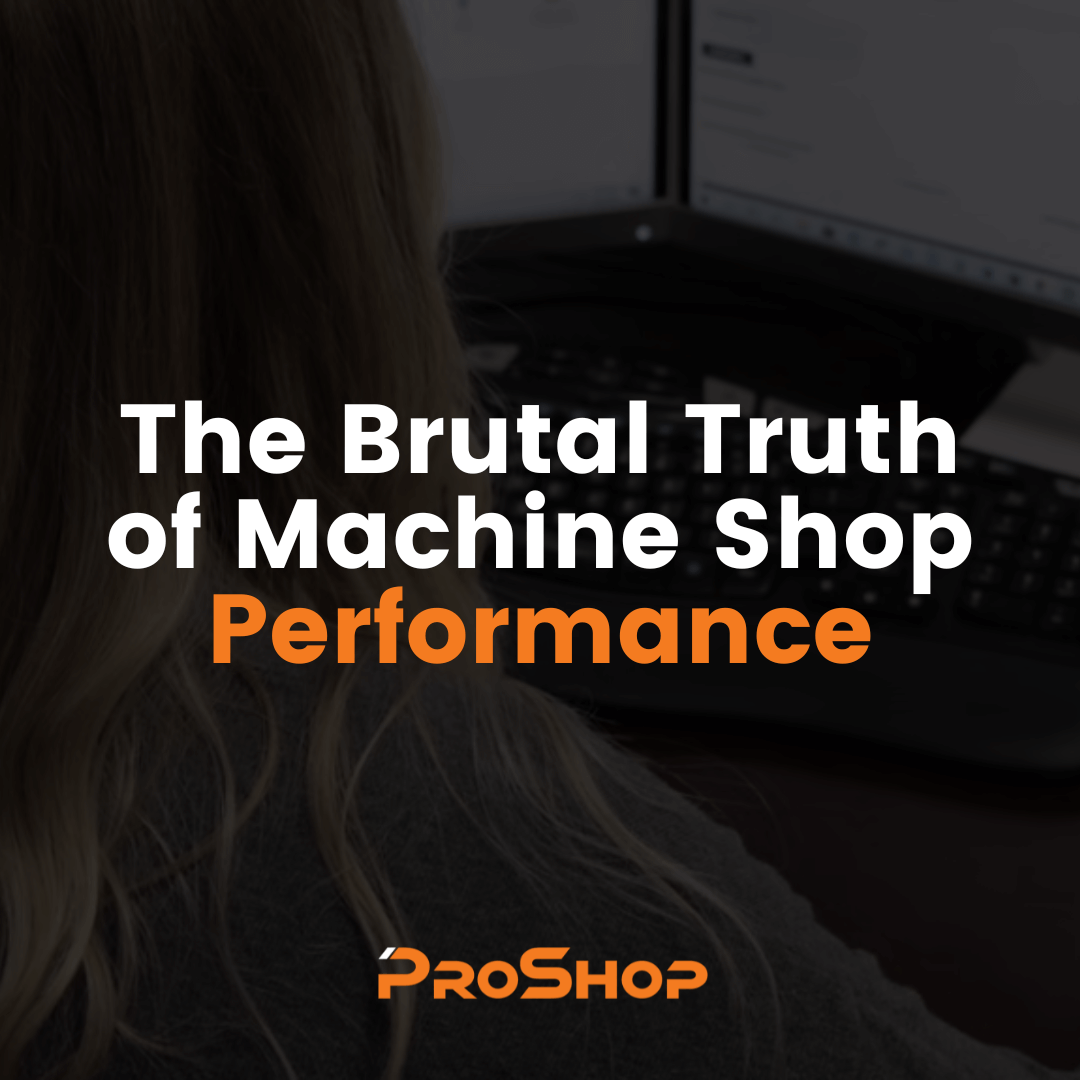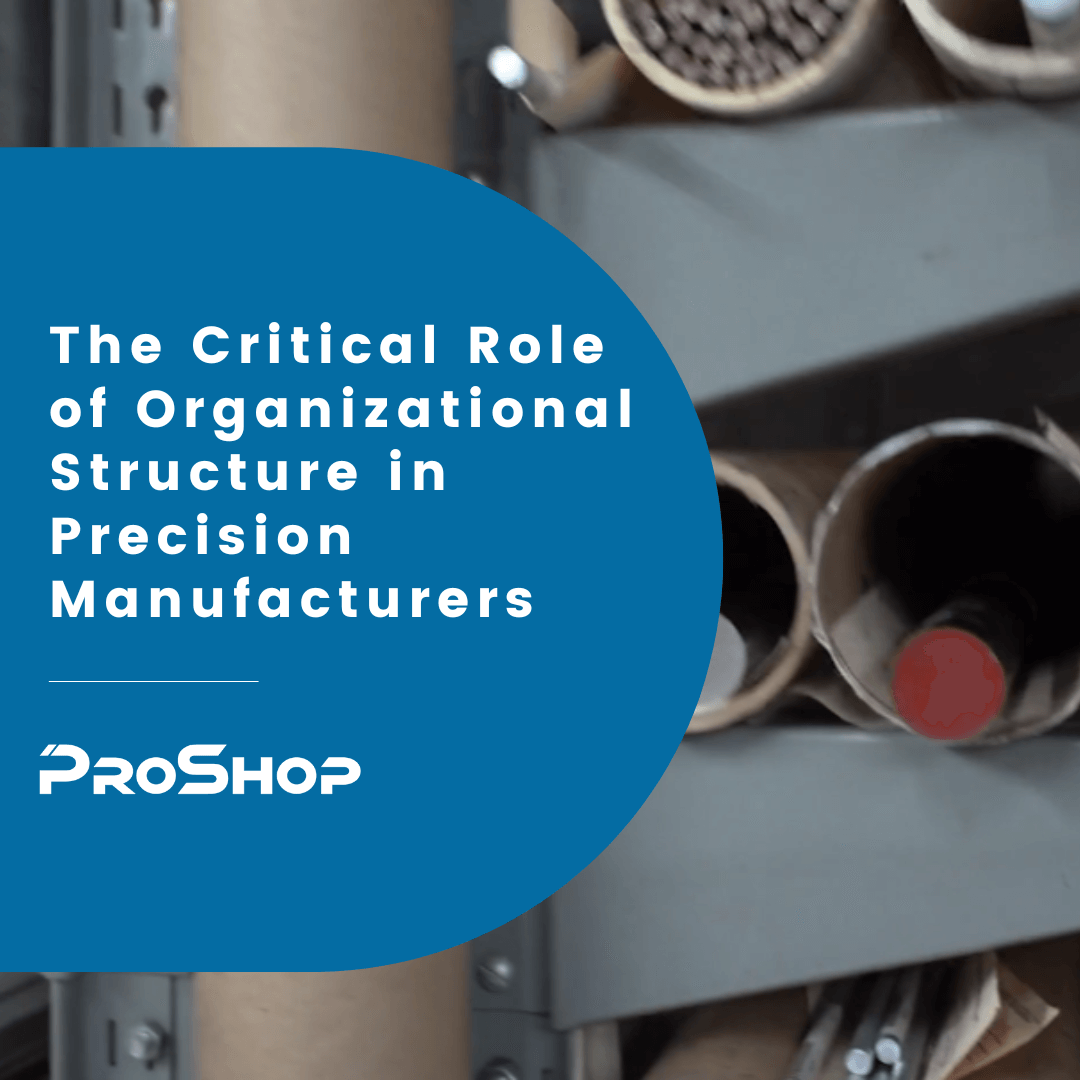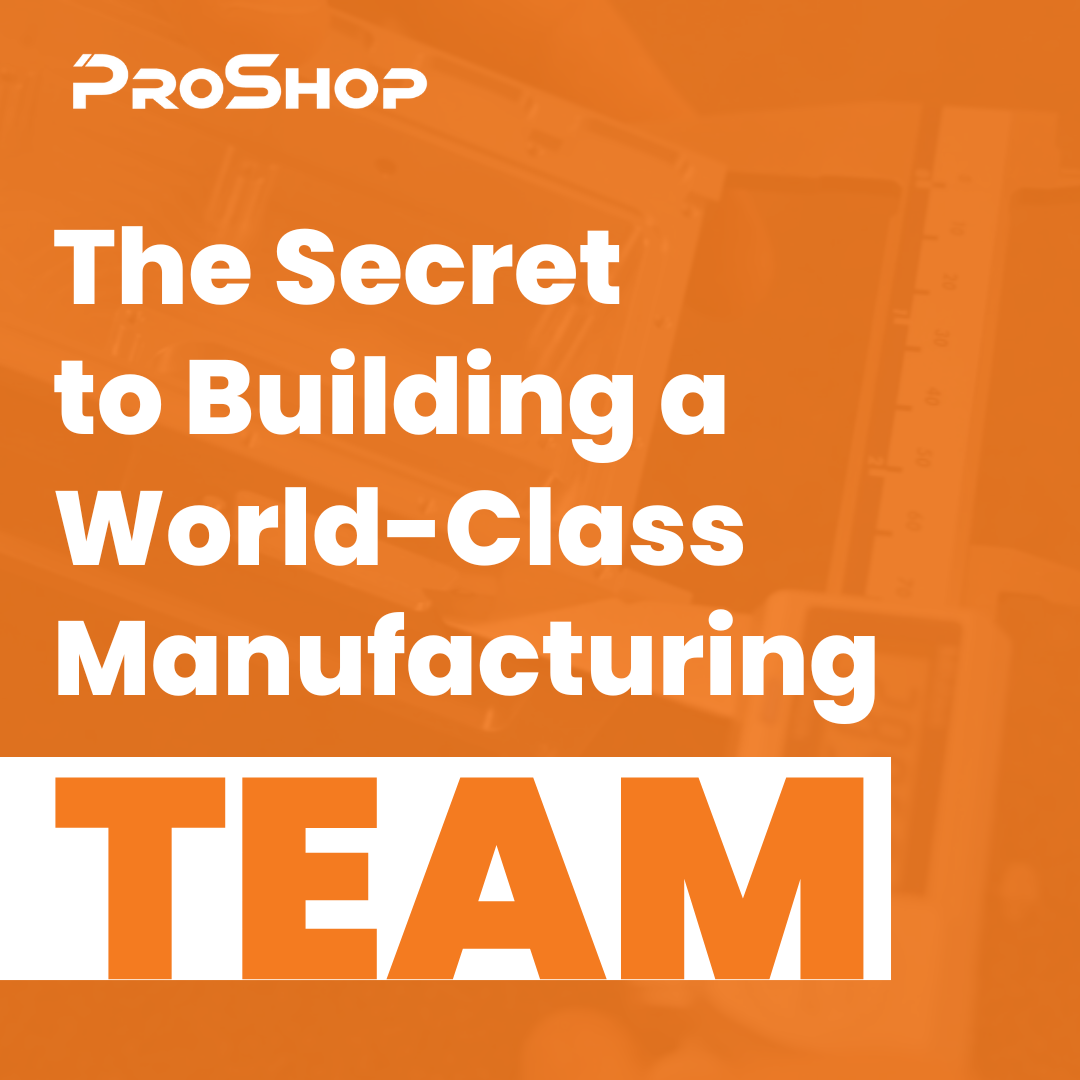Process
& Scheduling
Management
Maintenance
Management
& Inspection
& Material Planning
Financial Data
Management
By: Paul Van Metre
There are few more potentially challenging things an organization can go through than an ERP implementation, especially when it includes a total digital transformation, moving to a 100% paperless workflow. Challenging experiences tend to bring out the best, or worst, in people. We’ve been through hundreds of implementations at ProShop. Some were so fast and easy it nearly seemed effortless, finishing in a few weeks. Others were major challenges but did eventually make it to the finish line after much time and heartache. Unfortunately, we’re sad to say that a few stalled out mid-process and failed completely. What’s the difference between them? Based on our years of experience, it comes down to the customer’s team and their company’s Emotional Intelligence. Our team, evolving product, and improving processes are relatively constant; so the primary variable is the customer.
We try very hard to only bring on great fit customers to our ecosystem. We’d rather not sell ProShop to a company unless we can nearly guarantee that they will love it, and it’ll be a great fit for them. We’d rather you keep your money if you’re not a great fit, both from an objective and subjective perspective. Here’s what we mean by that.
The cultural health, or lack thereof, is where we’ve seen the most dramatic differences in results with our clients. Here’s a list of key qualities for an organization to have in order to be successful in implementing an ERP System. If your company is going to be going through an ERP change, or any major organizational change, check to see how you compare to these cultural qualities:
Committed – 100% corporate alignment on the mission! The message is, “We’re doing this and everyone needs to be rowing in the same direction.”
Aligned – Assist employees in understanding the benefits, goals, and purpose for implementing an ERP. Help them understand how their contribution will have a positive impact on the company. Once your team fully embraces the wisdom of this change, naysayers and saboteurs won’t be able to drag the team down.
Organized – Have a well defined list of roles. The roles should define everyone’s responsibility and expectations for getting tasks done correctly on an agreed timeline.
Open to Change – Things are gonna change! That’s the whole point. Don’t dig in your heels and refuse to be open minded. Have a positive outlook on change to the point that it’s infectious! Be open to listening to new ideas, workflow processes, etc. Nothing stops an implementation dead in its tracks faster than the phrase “we’ve always done it that way.”
Curious – Even though you’ve been in business for years, you don’t know everything – I promise you that! You are going to learn a lot of new things and being curious instead of closed minded will serve you and the process well.
Humble – Be humble in how you approach interactions and be confident that you have things to learn from others, and vice versa.
Decisive – When things do change, decisions will have to be made. Make them thoughtfully and quickly. You can always change later. Don’t let ‘paralysis by analysis’ stop the progress.
Collaborative – This is a team effort, with everyone on your team, your ERP partner, and others. Come to each interaction with a mindset of open collaboration. Implementation is not a spectator’s sport, it takes teamwork and diving in headfirst into the process.
Kind – When difficult situations arise, bring kindness to your communication. Name a situation that was better served with anger vs kindness…it doesn’t exist.
Non-Confrontational – Goes hand in hand with kindness. Some people seem to seek out confrontation. They have less fun and have more challenges than those who are collaborative and seek harmony in their interactions.
Proactive – If you see something that might cause a problem in the future, speak up. Your perspective matters and actively sharing it and collaborating on solutions is awesome.
Realistic – This is the hard stuff that you and your team are going through. There will be things that won’t be fun about implementing a new ERP System. Having realistic expectations and the understanding that everyone is doing their best is really important. Often the “Ah Ha” moments will come later in the process when you understand better how everything ties together.
Lean Mindset – This one is quite practical. You have tons of waste in your current process – guaranteed! If you have a belief in eliminating waste through lean processes, that will help you make decisions, with all of the above qualities in mind.
I’m a firm believer that everyone always does their best, given their knowledge, the situation, and where they’re at in life. Everyone has past experiences in their life that range from amazing to traumatic. It’s our life experiences and how we’ve incorporated them, grown from them, and evolved from them that defines how we show up as ourselves today. There is no right or wrong way to show up in the world,but there are ways that will be more effective than others. My wife taught me a great question to ask yourself when faced with how to respond to a situation: “What is the most effective way to get the outcome I say I desire?” When you can step back, see the forest through the trees and ask yourself that question, and ask it of your company as well, that will generally serve you well to work through the difficult changes in an organization.


